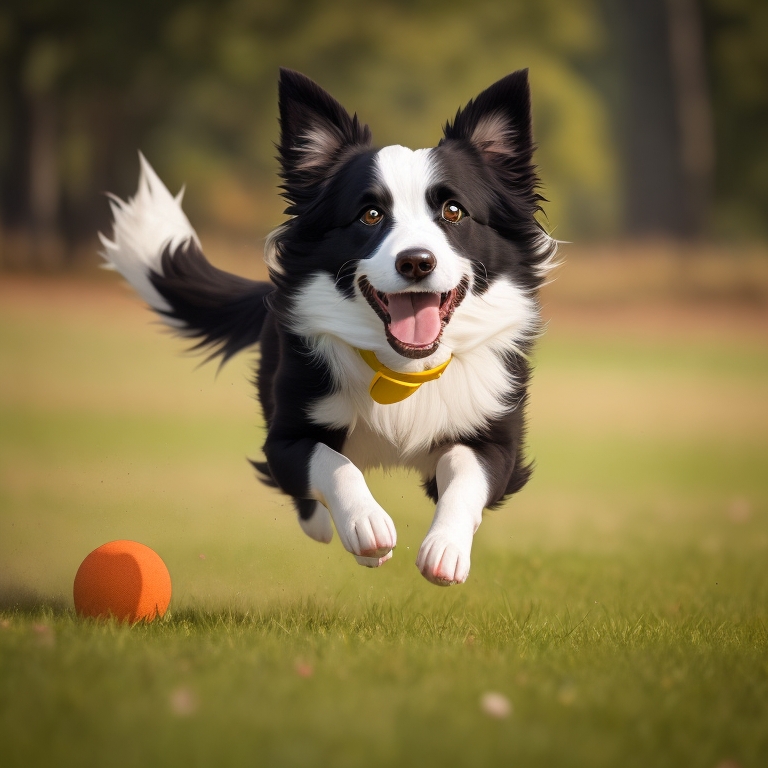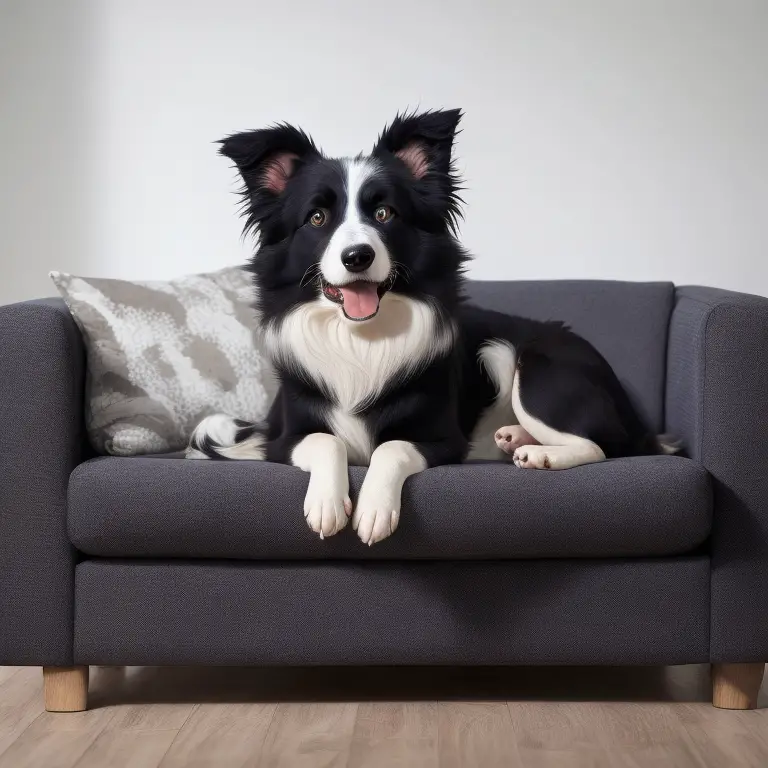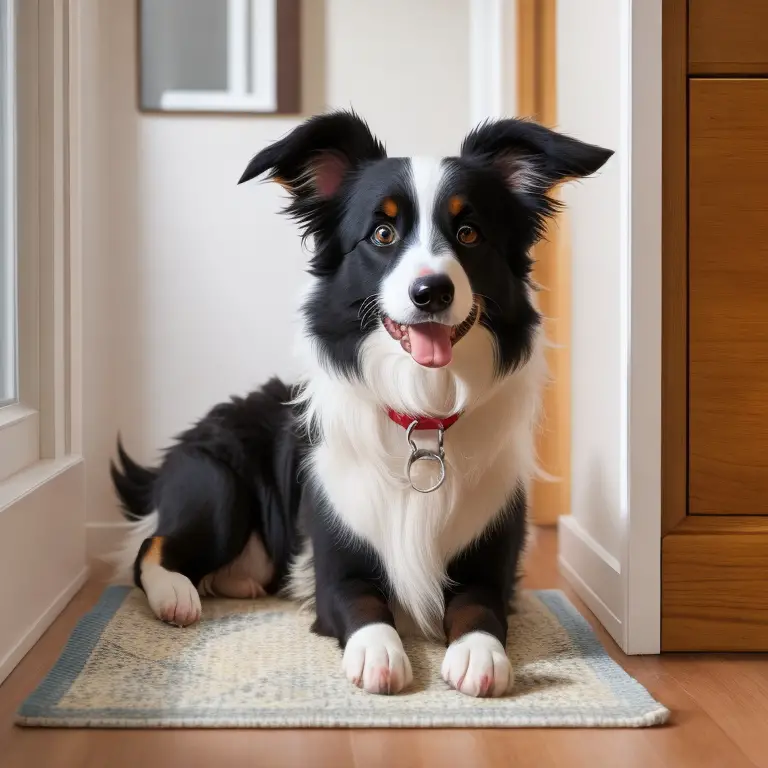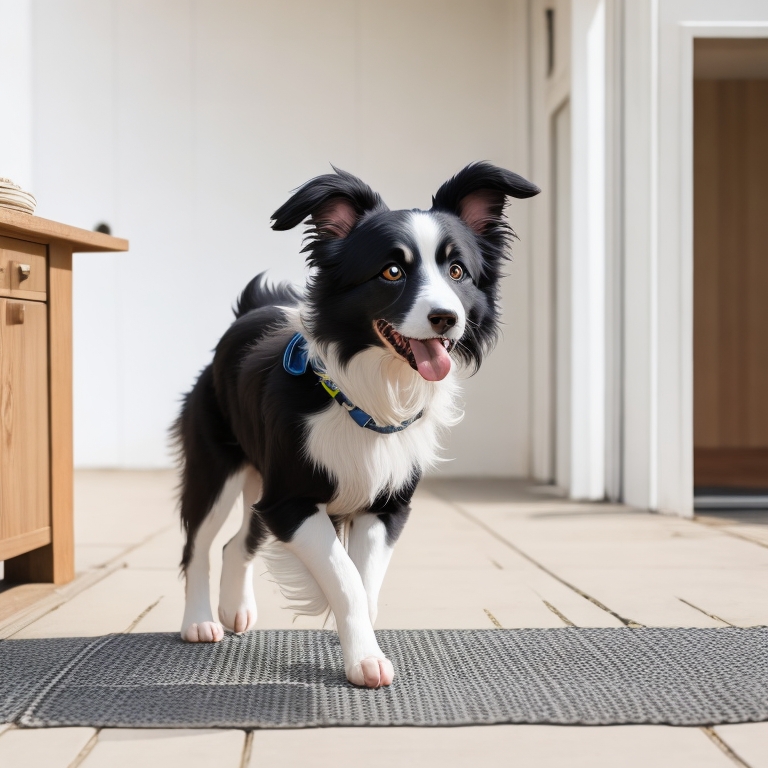Are Border Collies Prone To Noise Phobias?
Let’s talk about Border Collies and their relationship with noise phobias. If you own one of these smart and active dogs, you might have noticed some signs of anxiety and discomfort during thunderstorms, fireworks, or any loud noises.
But why is that?
Could it be just a behavioral issue, or is it more complicated than that? In this article, we will explore the possible causes of noise phobia in Border Collies and what you can do to manage or prevent it.
Read on to learn more about this common problem and help your furry friend feel safe and calm in any situation.
| Question | Answer |
|---|---|
| Are Border Collies prone to noise phobias? | Yes, they are more prone to noise phobias than other breeds. |
| What type of noises can trigger a phobia in Border Collies? | Thunder, fireworks, gunshots, and even loud household appliances can trigger a phobia in Border Collies. |
| What are the symptoms of noise phobia in Border Collies? | Shaking, panting, whining, hiding, destructive behavior, and urinating or defecating indoors are all possible symptoms of noise phobia in Border Collies. |
| Can noise phobia in Border Collies be treated? | Yes, it can be treated through desensitization training, medication, and behavioral therapy. |
Causes of Noise Phobia in Border Collies
Genetics
Genetics is one of the primary causes of noise phobia in Border Collies. Some dogs have a genetic predisposition to being more sensitive to loud noises, including thunder, fireworks, and other sudden sounds.
This sensitivity can lead to anxiety and a phobia of these sounds.
Studies indicate that certain breeds, such as Border Collies, are more prone to noise phobia than others. While not all Border Collies may develop a noise phobia, the risk may be higher due to their genetic makeup.
Additionally, if a dog’s parents or siblings have a history of noise phobias, they may be more likely to develop one themselves due to genetics.
It’s important to note that genetics isn’t the only factor that contributes to noise phobia in Border Collies, but it does play a significant role. Understanding this can help pet owners take preventative measures to reduce their dog’s risk of developing a noise phobia or manage it more effectively if it occurs.
Lack of Socialization
The lack of socialization is one of the causes of noise phobia in Border Collies. A Border Collie that doesn’t have enough exposure or experience with various sounds and environments may become fearful and anxious when they hear loud noises.
For instance, if your Border Collie hasn’t heard thunder or fireworks before, they may develop a phobia of these sounds.
Lack of socialization may also cause your dog to become fearful and anxious around strangers, resulting in a fear of loud noises in social situations. If you notice that your Border Collie is exhibiting signs of noise phobia, it is crucial to determine the root cause, including their level of socialization.
If your dog has a fear of loud noises due to a lack of socialization, it is imperative to start working on socializing them properly.
This could entail gradually exposing them to different environments, sounds, people, and animals in a controlled and safe environment so they eventually become more comfortable and accustomed to these situations. Ultimately, socialization is an essential part of your Border Collie’s well-being, and it is crucial in preventing noise phobia.

Trauma or Bad Experience
Trauma or bad experiences can cause noise phobia in Border Collies. A traumatic event such as a car accident, exposure to loud fireworks or thunderstorms, or even a harsh scolding can startle and scare the dog leading to a negative association with loud noises.
This experience may result in heightened nervousness, restlessness, and avoidance of loud sounds in general.
Therefore, it is vital to address any traumatic experiences the dog may have by providing positive reinforcement training and early socialization to avoid future noise phobia.
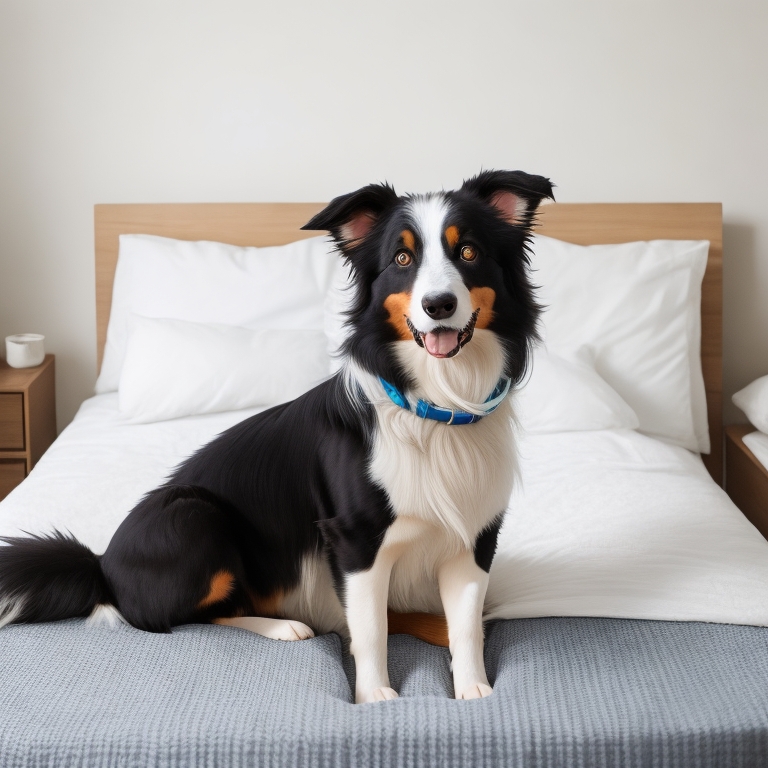
Aging
Aging is a natural cause of noise phobia in Border Collies. As they get older, their senses deteriorate, making them more sensitive to loud noises.
An aging Border Collie may start reacting fearfully to sounds they used to tolerate before, such as thunder, fireworks, and sirens.
So, if your older Border Collie suddenly develops noise phobia, it may be due to age-related hearing loss and sensory changes.
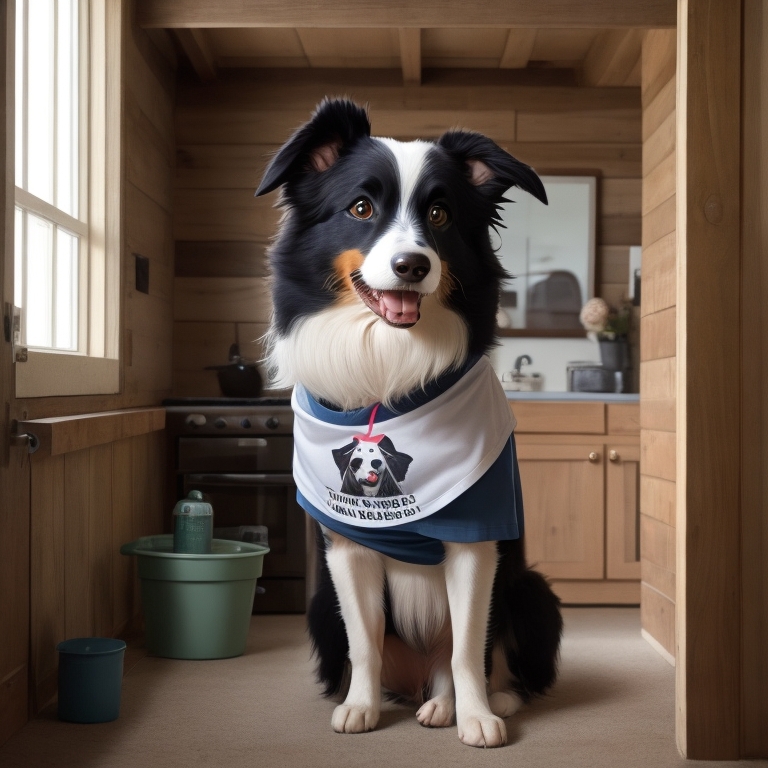
Symptoms of Noise Phobia in Border Collies
Shaking or Trembling
Shaking or Trembling is a common symptom of noise phobia in Border Collies. When exposed to loud noises, such as thunderstorms or fireworks, they may start shaking or trembling uncontrollably.
This behavior is a sign of fear and anxiety and can be distressing for both the dog and the owner.
If your Border Collie is shaking or trembling during loud noises, it is crucial to reassure them and provide them with a safe and comfortable space where they feel protected. In the next section, we’ll discuss more symptoms of noise phobia in Border Collies and how to manage them.
Whining or Barking
Whining or barking without any apparent reason is a common symptom among Border Collies suffering from noise phobia. If you notice your furry friend whining or barking excessively during loud noise events like thunderstorms, fireworks, or gunshot sounds, it could mean that your dog is experiencing fear and panic.
As a concerned dog owner, it’s essential to understand that whining or barking is not your dog’s way of acting out or showing disobedience.
Instead, it’s a coping mechanism that allows your dog to communicate his or her discomfort and seek comfort and support from you. Therefore, it’s crucial to provide a calm and comforting environment for your Border Collie during loud noise events, reassure them with your presence, and avoid scolding or punishing them for their behavior.
In the next section, we’ll explore different ways to manage and prevent noise phobia in Border Collies and ensure your dog’s mental well-being.
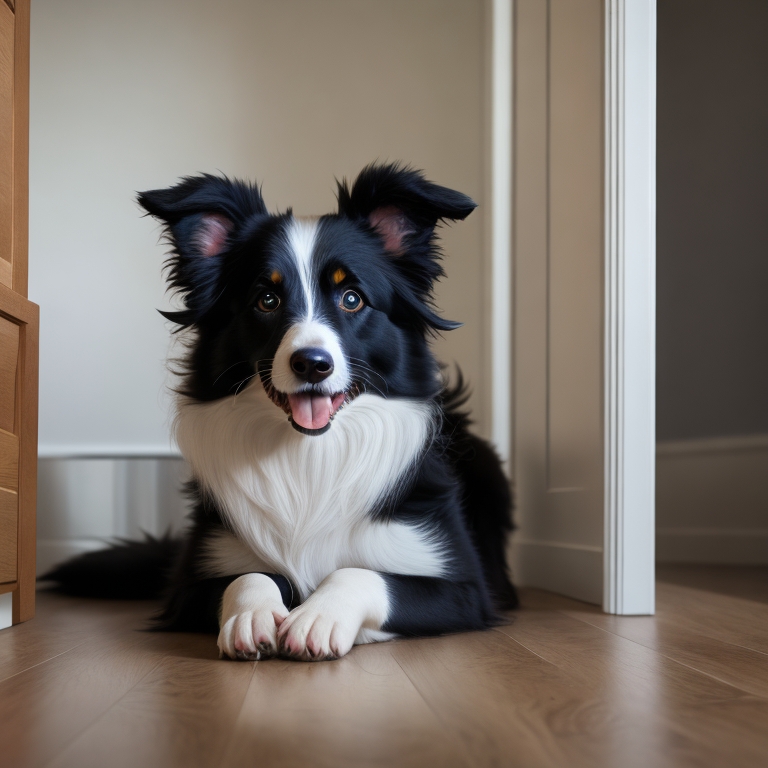
Hiding or Seeking Comfort
Border Collies with noise phobias tend to exhibit different symptoms, with hiding or seeking comfort being a common one. When exposed to loud noises, such as thunder, fireworks, or construction sounds, a Border Collie with a noise phobia would seek refuge in a safe space, such as under a bed, in a closet, or behind furniture.
They may also cuddle up to their owner, looking for comfort and reassurance.
In severe cases, a Border Collie with a noise phobia may try to escape to flee the source of the noise. This behavior can lead to self-injury, as they may try to break windows or jump over fences.
As an owner, you should pay attention to these behaviors and be prepared to intervene and provide comfort and safety for your dog.
Overall, hiding or seeking comfort is a clear indication that your Border Collie is experiencing noise phobia and requires your attention and care. In the next section, we will discuss ways to manage noise phobia in Border Collies.
Destructive Behavior
One common symptom of noise phobia in Border Collies is destructive behavior. When a Border Collie is experiencing noise phobia, they may become destructive out of fear.
This destructive behavior can include chewing, digging, or scratching at furniture, doors, or walls.
If your Border Collie exhibits destructive behavior during a loud or startling noise, it is important to not punish them. Punishment will only increase their fear and anxiety, making the problem worse.
Instead, provide a safe and secure space for them to retreat to during loud or scary events.
It is also important to address the root cause of the noise phobia through training and medication, if necessary. By addressing the noise phobia, you can help prevent or minimize their destructive behavior in the future.
Ways to Manage Noise Phobia in Border Collies
Desensitization Training
Desensitization training is a process that helps Border Collies get used to loud noises that would normally trigger fear or anxiety. The goal of desensitization training is to gradually expose the dog to increasing levels of noise until they become unfazed by it.
The most effective way to do this is to start with a noise that only slightly triggers the dog’s anxiety, then slowly increase the volume over time.
Positive reinforcement techniques, such as giving treats or praise, can be used to encourage progress. Desensitization training should be done in small increments and should never overwhelm the dog.
It’s essential to make sure your dog is comfortable and relaxed throughout the training process.
It’s also important to note that desensitization training may take several weeks, or even months, to see results. With patience and consistency in training, however, it’s a proven method to help manage noise phobias in Border Collies.
Counter-Conditioning
Counter-conditioning is one of the most effective ways to manage noise phobia in Border Collies. The technique involves gradually exposing your dog to the sound that triggers the phobia in a controlled and positive way.
The goal is to help your dog learn to associate the sound with a pleasant experience, instead of fear or anxiety.
Counter-conditioning works by pairing the sound with something your dog loves, such as treats, playtime, or cuddles. Start with playing the sound at a low volume while simultaneously offering your dog a reward.
Gradually increase the sound’s volume over time, but only at a pace your dog is comfortable with.
If your dog displays any signs of anxiety, such as shaking or hiding, reduce the volume or take a break. It is crucial to make sure that your dog is always relaxed and happy during the counter-conditioning sessions.
Consistency is key, and you should carry out the training regularly and patiently until your dog is comfortable with the noise.
With time and persistence, counter-conditioning can be an effective technique to help your Border Collie overcome noise phobia.
Medications
Medications are a viable option for managing noise phobia in Border Collies. There are several types of medication that veterinarians may prescribe to keep your dog calm and relieve anxiety during thunderstorms, fireworks, or other loud noises.
Some of the most common medications prescribed for dogs with noise phobia include benzodiazepines, such as Xanax or Valium, as well as selective serotonin reuptake inhibitors (SSRIs) like fluoxetine or sertraline.
These medications can help calm your dog’s nerves and reduce fear, making it easier for them to cope with loud sounds. However, it’s important to note that medication alone should not be your only solution when managing a dog’s noise phobia.
It should be combined with other techniques such as desensitization training and counter-conditioning.
Remember, only use medications prescribed by a licensed veterinarian as some human medications can be dangerous for dogs. Additionally, never give medication to your dog without first consulting with a veterinarian.
Prevention Tactics for Noise Phobia in Border Collies
Early Socialization
Early socialization is crucial in preventing noise phobia in Border Collies. Introducing your puppy to a variety of sounds, sights, and experiences will help them develop confidence and resilience to different stimuli.
Socialization must start as early as possible, even as early as three weeks old, and continue until they are six months old.
Exposing your Border Collie to positive experiences with different noises, such as thunder, fireworks, and loud music, can prevent noise phobias from developing in the future. Remember to always make sure that the exposure is comfortable and non-threatening for your puppy.
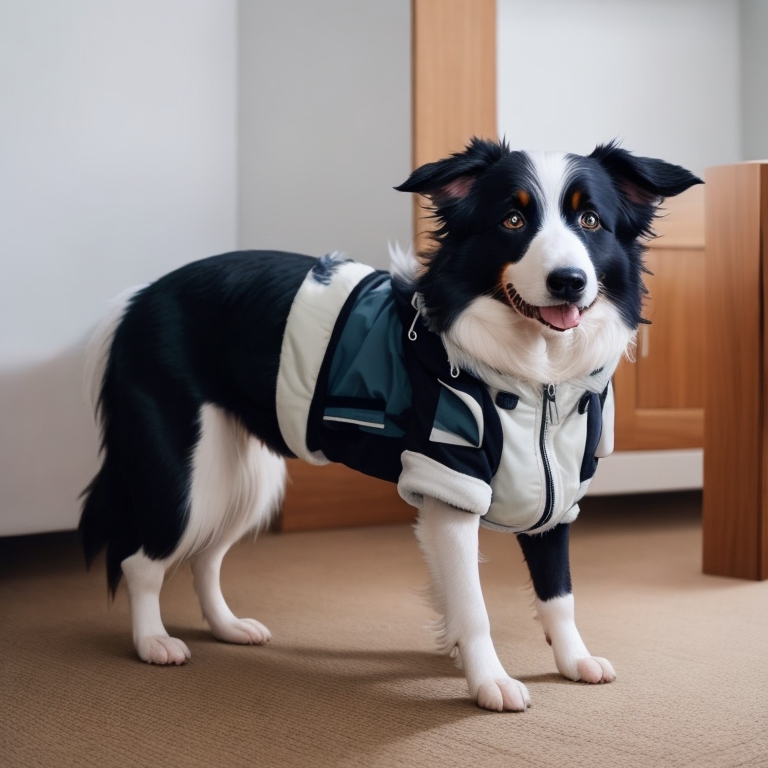
Positive Reinforcement Training
Positive reinforcement training is a highly effective method for preventing noise phobia in Border Collies. This training technique involves rewarding your dog for desired behaviors and ignoring unwanted behaviors.
By offering positive reinforcement, such as treats, praise, or playtime, whenever your dog exhibits good behavior, they learn to associate that behavior with positive outcomes.
This helps them develop a positive attitude towards training and makes learning fun for them. In the case of preventing noise phobia, positive reinforcement training can help your Border Collie develop a positive association with noises.
You can start with low-level noise exposure and gradually increase it while rewarding good behavior to build confidence.
Positive reinforcement training is a humane and gentle training method that strengthens the bond between you and your dog while also helping them develop healthy behavior patterns. By implementing this training method correctly, you can prevent noise phobia in your Border Collie and increase their overall happiness and well-being.
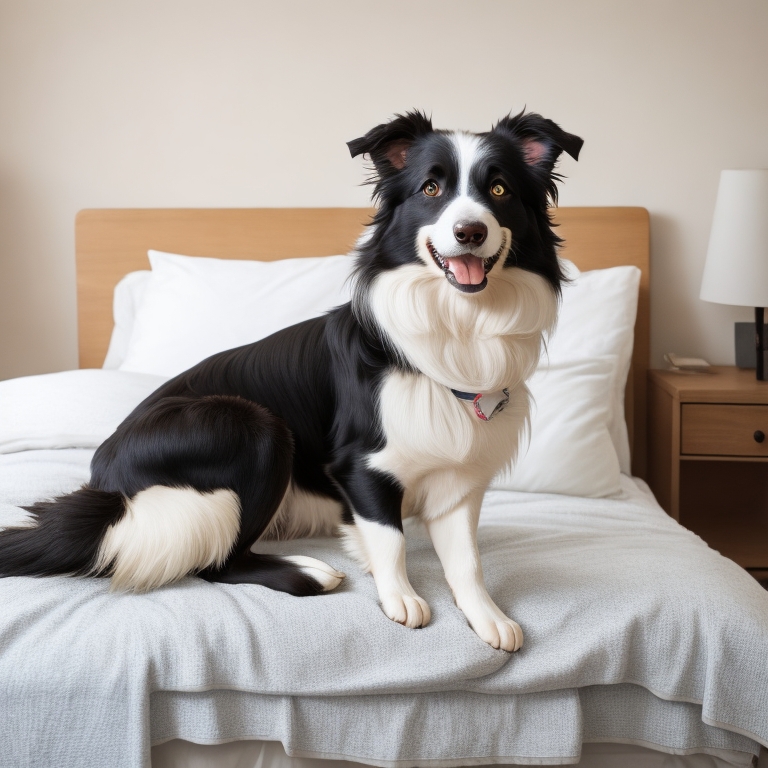
Managing Exposure to Loud Noises
Managing exposure to loud noises is a crucial part of preventing noise phobia in Border Collies. Here are some ways to manage your Border Collie’s exposure to loud noises:
- Limit exposure: Limiting your dog’s exposure to loud noises can help prevent noise phobia. This includes avoiding noisy areas such as construction sites and busy streets.
- Provide a safe space: Providing a safe space for your dog where they can retreat to during loud noises can also help. This can be a quiet room with comfortable bedding and toys.
- Use white noise: Playing white noise such as calming music or sounds of nature can help drown out loud noises and calm your Border Collie.
- Desensitization training: Gradually exposing your dog to loud noises in a controlled environment can help them become desensitized to them.
By managing your Border Collie’s exposure to loud noises, you can help prevent noise phobia and ensure they live a happy and healthy life.
Conclusion
Border Collies are not immune to noise phobias, and it is important for pet owners to understand this condition thoroughly. Genetic factors, a lack of socialization, trauma, and aging can lead to noise phobia, which can be distressing for both pet and owner.
Fortunately, there are many ways to manage and prevent noise phobias in Border Collies, such as desensitization training, counter-conditioning, and medication.
Early socialization, positive reinforcement training, and managing exposure to loud noises can also help prevent the development of noise phobia. As responsible pet owners, it is our duty to take the necessary steps to ensure our pets’ mental well-being, and this includes understanding and addressing any potential noise phobias.
By doing so, we can help our Border Collies lead happier, healthier, and stress-free lives.

